Protest Songs: The classic, the personal, the political
Planning a rally or a pre- or post-rally gathering? What songs are in your line-up?
By Martha Merson
I have two questions to put to my friends: “What songs keep you company these days?” and “What will the soundtrack be for this political moment?”
Many of us will be attending protests this month, next month, the month after. We will take photos of clever signs, but the music will be as vital to building solidarity. This is a timely reminder to all of us to use song as a form of protest, a source of power. Before anyone rolls their eyes, impatient with clichéed lyrics and simple melodies, let’s take stock.
Singer songwriter Buffy Sainte-Marie understood: “A great three-minute protest song can be more effective than a 400-page textbook: immediate and replicable, portable and efficient, wrapped in music, easy to understand by ordinary people.” Sainte-Marie noted that true protest songs are distributed word-of-mouth by artists rather than controlled by studios and commercial enterprises.
Classics like We Shall Not Be Moved, or Phil Ochs’ I Ain’t Marching Anymore epitomize protest. The words and melodies energize crowds, cementing collective will. There’s much to say about the features of a rallying protest song and there are so many uplifting songs to share. Before turning to those topics (in a future post), let’s acknowledge that the protest umbrella covers many kinds of songs.
Story songs, like Woody Guthrie’s song retelling the 1913 Massacre of Copper country miners in Michigan, reminds us of the reasons we fight, recounting the insults and unfairness and violence in the history of American labor. Likewise, Buffy Sainte-Marie’s “Bury My Heart at Wounded Knee” is meant to educate.
In her Smithsonian Magazine article on protest songs, Sainte-Marie called her song “shocking to people who hear the list of facts around which the song is built.” Sainte-Marie “deliberately wrapped the words in a hard-rock track, so that the listener is already caught up in the music before ever hearing the tragic story it tells about Anna Mae Aquash, Leonard Peltier and uranium exploitation on Indian lands.” Although the story is true, she said, “most audiences have had no previous exposure to the facts of grassroots Native America.”
Singer songwriter Pamela Means also takes a broad view of protest songs, both from a historical perspective and in terms of style and content. “We need it all,” Means told me. “We need old songs. New songs. Re-imagined songs. And sadly, those old songs have not lost their relevance. We need them all.” As Nina Simone, who wrote and performed the classic protest song ‘Mississippi Goddam’ said, “The artist’s duty is to reflect the times.”
One of Means’ songs which she recorded on her first album still has a relevant message.
if you got something to talk about
why don't you raise your voice
if you got something you want somebody to hear
let your voice ring out
let your words be heard
get your message loud and clear
if you got something to talk about why don't you raise your voice
“Sing For Love,” will be released on a forthcoming album.
“Nothing more important than stopping fascism,
cuz fascism will stop us all.”
Immortal words of Fred Hampton
Black Panther Party sounding the call
Power to the people
free breakfast for the childrenAt 21 a freedom fighter
so Chicago police killed him
I don’t think I’ll live long enough to see
This angry country discover unity
As long as I’ve got breath in my lungs
I will fight for justice, I will sing for love”
This last February, Means posted a song a day for Black History Month. Through the songs she reconnected with singers and songwriters from the early 20th century. “That project brought me back to a Fats Waller song released in 1929, [What Did I Do to Be So] Black and Blue? He was dealing with Jim Crow and racism, dealing with the pain behind it and the ridiculousness of it.”
Other songs that Means unearthed include “No More Auction Block,” which could also be categorized as a slave song or spiritual, and “Strange Fruit,” the chilling anti-lynching son associated with Billie Holliday, written by Abel Meeropol.
In her quest for social justice, Pamela Means finds that power in song emanates from personal, lived experience. Songs have to be emotional to make a heartfelt connection. She noted, for example, “Tracy Chapman’s first album is entirely political. Many songs talk about poverty, rage, intolerance. It has lots of vulnerability in it. Her songs speak to some aspect of oppression or injustice.”
For Means herself, protest as a form of songwriting happened by default, in the course of writing the truth about her life and experiences, “writing truths filtered through the body I inhabit, which is that of a biracial queer woman.” Audre Lorde, bell hooks, and James Baldwin helped her “commit to writing in a straightforward, real way about the institutions of racism, sexism, and homophobia, with urgency and rage.”
Songwriting is emotional work. “From hooks, Baldwin, and Lorde, I learned that if I tap into the feeling behind the experience, it’s universal. The emotions underneath can be a way to connect,” Means observes. “If I don’t bring a personal piece into the song, it will be harder for it to touch the hearts of listeners. A song can break your heart. Even when a song doesn’t say it directly, the emotions will punch you in the gut.”
I wondered if Pamela had new protest songs to offer. She said, “ I do not have songs about the current moment as I am still processing, digesting, living the experience that we are all having and I do not rush the process.”
Meanwhile, here are some playlists to explore that include both familiar and less widely known protest songs.
Protest Song Lists
From 1996 article in Mother Jones, Top 20 mostly from the 1980’s
https://www.motherjones.com/media/1996/03/mojo-wires-top-20-political-songs/
Hip Latina Offers “20 Latinx Protest Songs” that carry important messages, and aim to inspire the masses.”
Solidarity Now: Workers, Union, & Protest Songs compiled by Alex De Campi, including “Which Side are You On?” “Huelga En General,” and songs by Los Lobos, Carmen Moreno, Tierra. Dump the Bosses Off Your Back, and Anne Feeney.
Finally, here’s a protest playlist from the National Archives Foundation
Martha Merson is so grateful to summer camp counselors who brought protest songs of the Civil Rights Era and anti-war movement into her life.

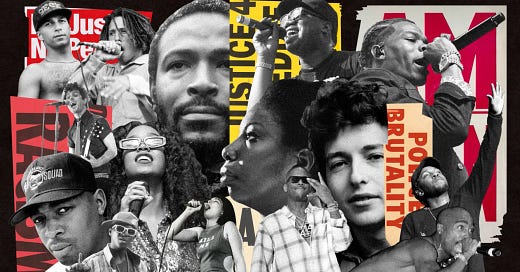

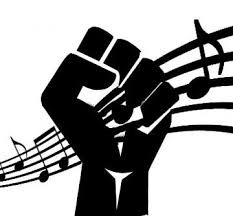

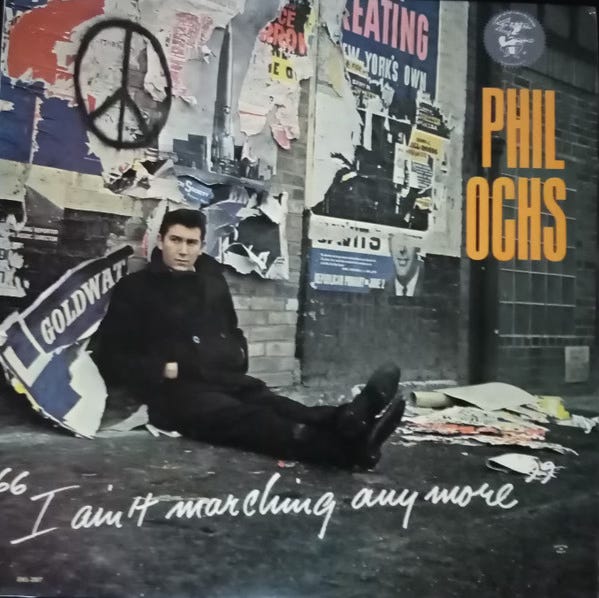
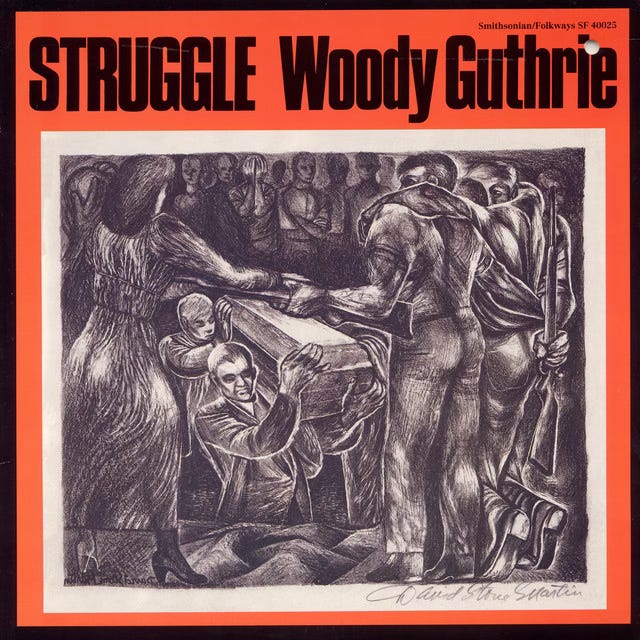
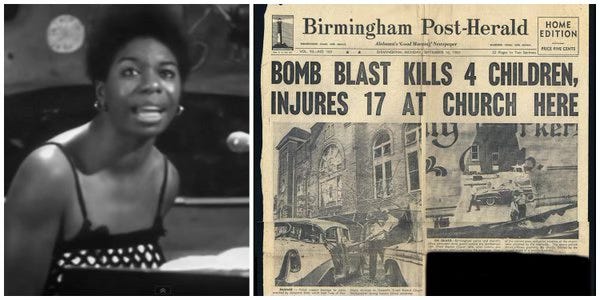

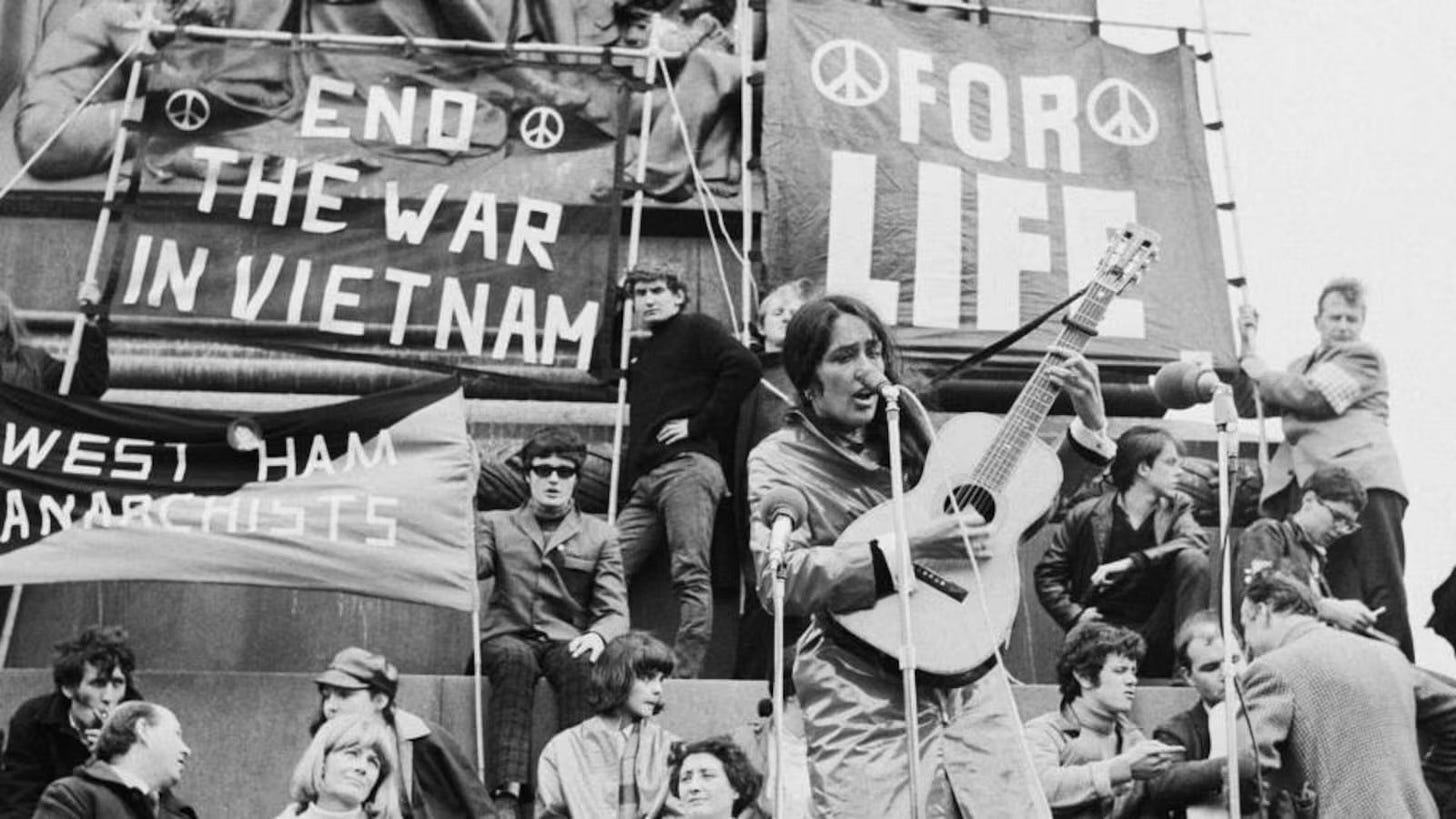
First, I want to say YEAH, PAMELA!!!
2nd, I have a protest song for these times, entitled "Every Single Dollar (That You See)." Not sure if links will light up but below, I'll put in an AppleMusic link and a YouTube link. The YouTube description contains on open link to free printable lyric sheets, the lead sheet for musicians, & free sound files of the tune for use in any/all events worldwide. WE CAN DO THIS!
https://music.apple.com/us/album/every-single-dollar-that-you-see/1806143656?i=1806143657
https://youtu.be/Cv13-joqFy0